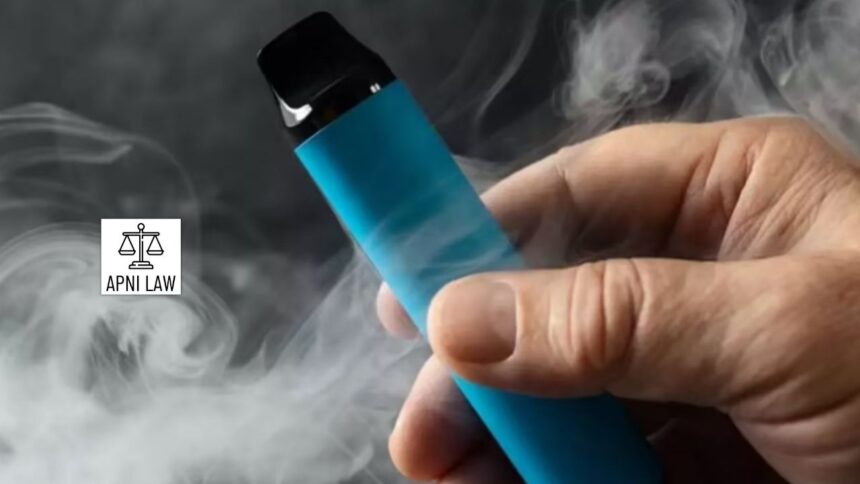Introduction
The Prohibition of E-Cigarettes Act imposes strict penalties for violating provisions related to banned or restricted products. Sections 4 and 5 clearly outline the consequences for illegal activities such as selling, storing, or distributing prohibited items. These rules aim to protect public health and ensure compliance with regulatory norms.
What Are The Penalties for Violating Section 4 Or Possessing E Cigarettes
Violating the provisions of Section 4, which typically pertains to the prohibition of activities like production, sale, or distribution of banned substances or products, attracts strict legal consequences. Offenders may face imprisonment for up to one year, a fine up to ₹1 lakh, or both. For repeat offenses, the punishment becomes more severe, imprisonment can extend up to three years along with a fine up to ₹5 lakhs. These penalties aim to deter individuals and entities from engaging in unlawful practices that threaten public safety.
On the other hand, contravention of Section 5 generally related to the storage or possession of prohibited items, also leads to penal action. The law prescribes imprisonment for up to six months, a fine up to ₹50,000, or both, for such violations. In conclusion, these punishments under Sections 4 and 5 are designed to ensure compliance with the law and safeguard public health and order through stringent enforcement.
Conclusion
In conclusion, the punishments under Sections 4 and 5 play a crucial role in enforcing the law. They ensure that individuals and businesses follow the rules, helping to maintain public safety and legal order.








